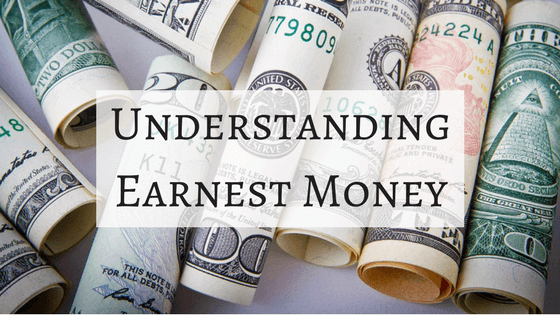
Earnest money is a term typically associated with Real Estate. It’s a good faith deposit that a buyer pays, and it should accompany an offer in a real estate transaction. An earnest money deposit says to the seller: Yes, I am serious about buying your house, and here’s some money to prove it!
The amount you’ll deposit as earnest money will depend on factors such as policies and limitations in your state, the current market, what your real estate agent recommends, and what the seller requires. On average, however, you can expect to hand over 1% to 2% of the total home purchase price listed in the sales contract. You could also submit a fixed amount and not a percentage of the sales price. Larger Earnest Money Deposits will bolster the strength of an offer.
Once you find your dream home and write an offer, you will provide your Earnest Money Deposit amount within the Purchase Agreement. Once an agreement is ratified, the EMD will be deposited by the Escrow Agent into an Escrow Account, or Trust Account. The amount of time you have to submit these funds will be specified in the contract, but it usually isn’t more than a few days. The Escrow accounts are non-interest bearing and are used only to hold EMD’s. Earnest Money deposits stay in the Escrow account until settlement when the funds are applied toward the amount due from the Buyer and closing costs.
If you cancel the Purchase Contract based on a contingency in your contract, your EMD should still be protected. For example, if the home inspection does not go well, you may timely exercise your right to cancel within that contingency. The Financing Contingency is another common contingency that protects Buyers if certain aspects of financing don’t go through. Then the Seller should quickly execute a Release of Contract. If a transaction does not get completed, the Broker or Title Company can release the EMD after receiving a signed release or interpleader or court order.
It would be best if you were working with an experienced real estate broker who can help guide you throughout the buying process, including how much earnest money is enough. You should also never give an earnest money deposit to an individual. Do not make a check out to the Seller, not even your own real estate agent.



